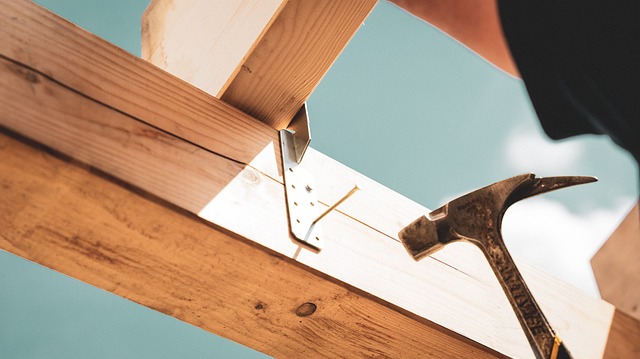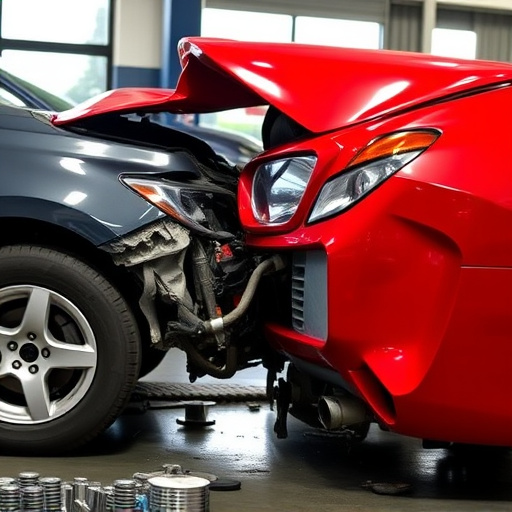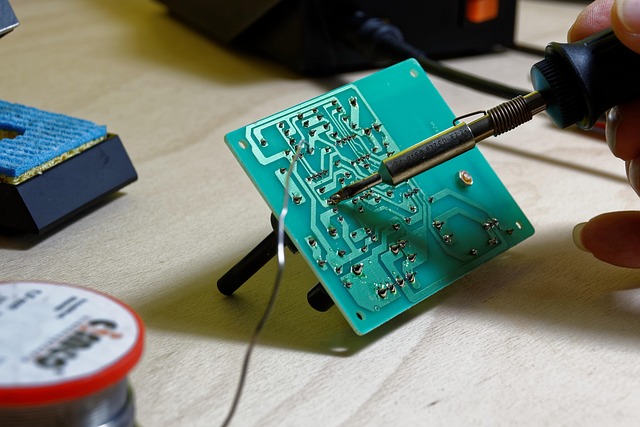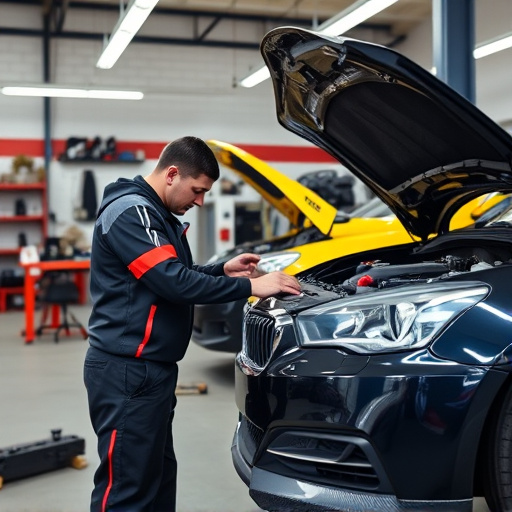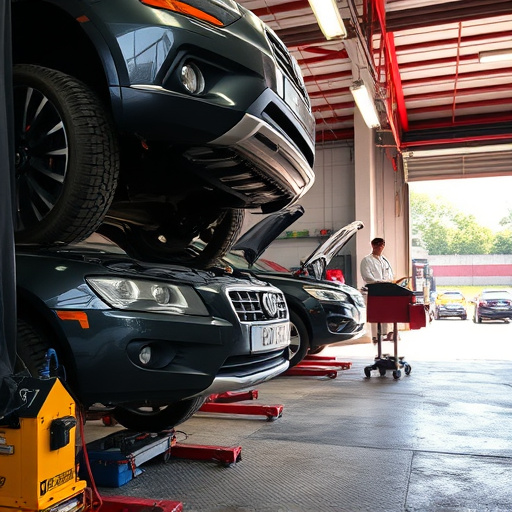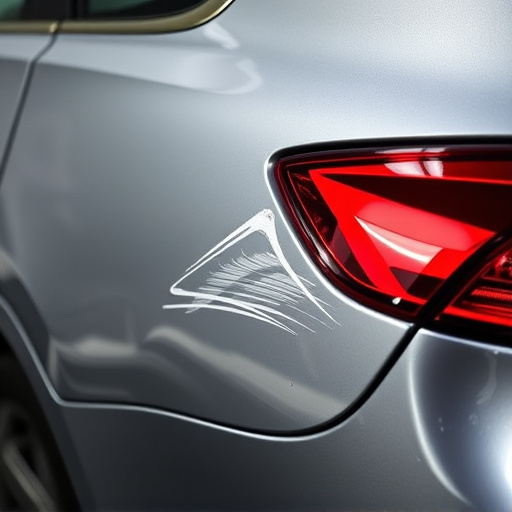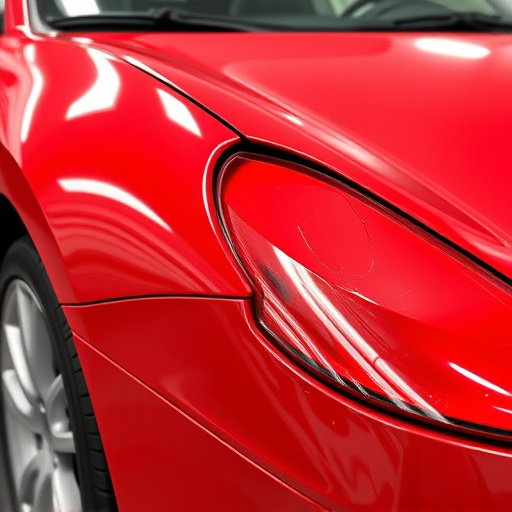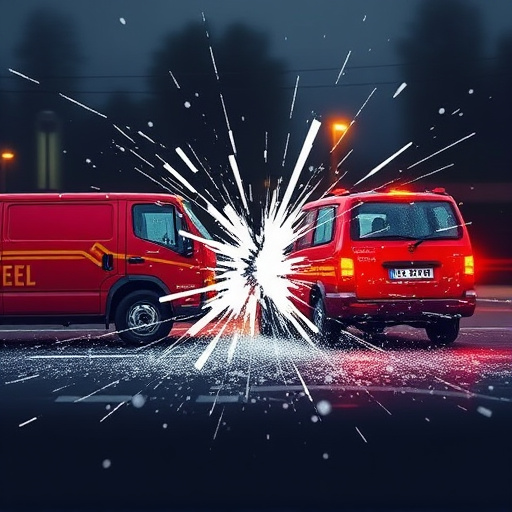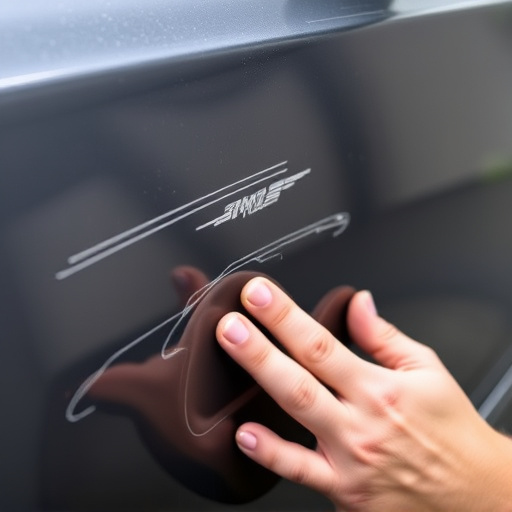Calibration tools collisions pose significant challenges for auto repair shops, disrupting operations, increasing costs, and affecting service quality. These incidents can severely damage a shop's reputation, especially in the digital age where online reviews carry weight. To mitigate such issues, shops should implement regular maintenance, proactive management, and swift action upon occurrence. Open communication with clients, skilled technicians, high-quality parts, and offers for complimentary repairs or discounts can help preserve customer satisfaction and maintain the shop's brand image.
In the competitive automotive repair industry, a single event can significantly impact a shop’s reputation—calibration tools collisions. These incidents, though seemingly minor, can lead to costly equipment damage, lost productivity, and dissatisfied customers. This article explores the immediate and long-term effects of such collisions, delving into how they shape customer perception and the reputation of repair shops. We also offer practical strategies to mitigate these risks and preserve a positive brand image in the face of calibration tools collision events.
- Understanding Calibration Tools Collision and its Immediate Effects on Repair Shops
- The Long-Term Impact on Shop Reputation and Customer Perception
- Strategies to Mitigate Damage and Uphold a Positive Brand Image
Understanding Calibration Tools Collision and its Immediate Effects on Repair Shops
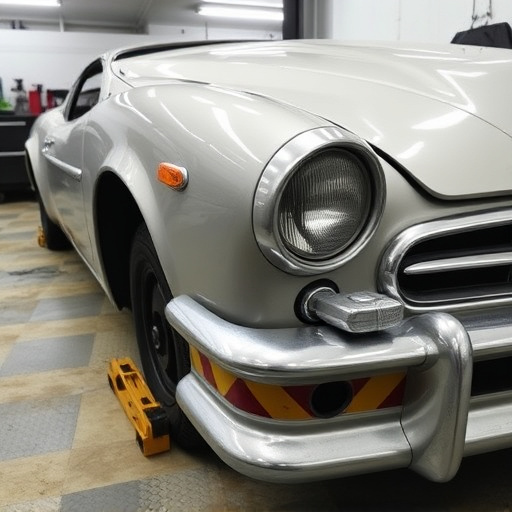
Calibration tools collision refers to the unfortunate event where specialized equipment used for precise measurements and adjustments in car collision repair is damaged or misaligned due to an accident. This can have immediate and profound effects on repair shops, impacting their ability to deliver high-quality car damage repair services. When calibration tools are affected, the accuracy of diagnostic tests and repair procedures may be compromised, leading to potential errors and inconsistent results.
Such incidents require immediate attention as they can delay work schedules and increase operational costs. Repair shops must then allocate resources to calibrate or replace the tools, ensuring their proficiency in car collision repair. This unforeseen disruption can affect customer satisfaction, especially if it translates to longer wait times for vehicle repairs. However, proactive management of calibration tools and regular maintenance can mitigate these immediate effects, ensuring that repair shops continue to provide reliable car repair services without hiccups.
The Long-Term Impact on Shop Reputation and Customer Perception
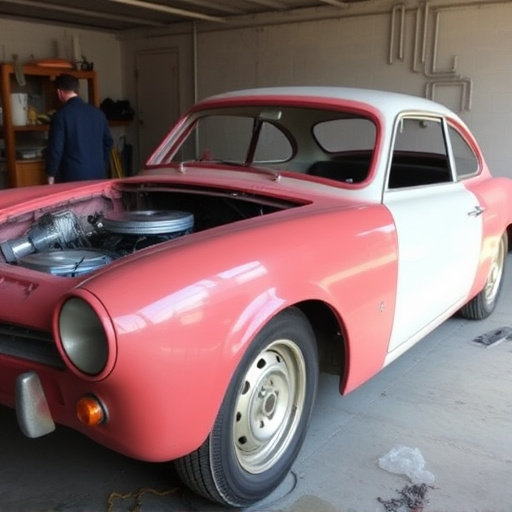
A single incident involving calibration tools collision at a collision repair shop can have profound long-term implications for its reputation and customer perception. In today’s digital age, where reviews and online feedback play a pivotal role in shaping consumer choices, even a minor mishap can quickly escalate into a major crisis. Negative publicity, fueled by inaccurate or exaggerated accounts on social media and review platforms, can damage the shop’s brand image irreparably, especially if not addressed promptly and transparently.
Customers who value high-quality vehicle repair services and car restoration expect nothing short of excellence from collision repair shops. They trust these businesses to handle their vehicles with care and precision, ensuring safety and efficiency during every step of the repair process. A calibration tools collision, if not managed effectively, can shatter this trust, leading to a loss of loyalty and repeat business. The reputation of the shop as a reliable and competent service provider could be significantly diminished, impacting its ability to attract new customers and maintain its position in the competitive market of collision repair and vehicle repair services.
Strategies to Mitigate Damage and Uphold a Positive Brand Image
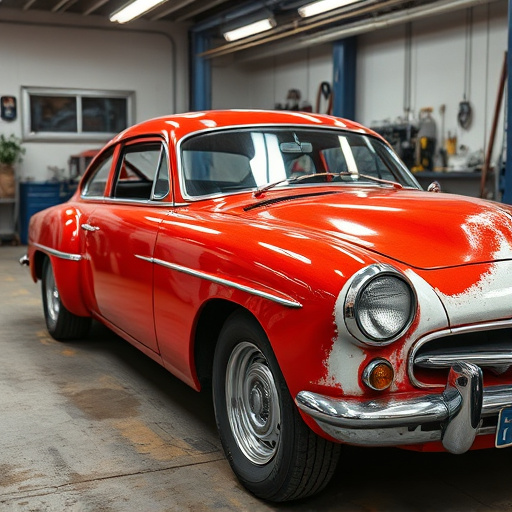
In the event of a calibration tools collision at a repair shop, swift and effective strategies are essential to mitigate damage and preserve the shop’s reputation. The initial step involves quickly assessing the extent of the harm, both to the tools and any vehicles or equipment nearby. This evaluation helps in devising tailored solutions to prevent further complications. Reputable shops invest in high-quality replacement parts and employ trained technicians who can skillfully repair or replace damaged components.
Upholding a positive brand image requires open communication with clients throughout this process. Transparency about the incident, the steps taken to rectify it, and the minimal impact on service quality can foster trust. Moreover, offering complimentary car damage repair services for minor issues or providing discounts on subsequent visits can demonstrate the shop’s commitment to customer satisfaction and compensate for any inconvenience caused by the calibration tools collision.
Calibration tools collision can significantly impact a repair shop’s reputation, damaging customer trust and perceptions of service quality. By understanding the immediate effects and long-term consequences, shops can implement effective strategies to mitigate damage. These include regular tool maintenance, employee training, transparent communication with customers, and consistent delivery of high-quality repairs. By adopting these measures, repair shops can not only protect their brand image but also enhance customer satisfaction and loyalty in the face of such challenges.
